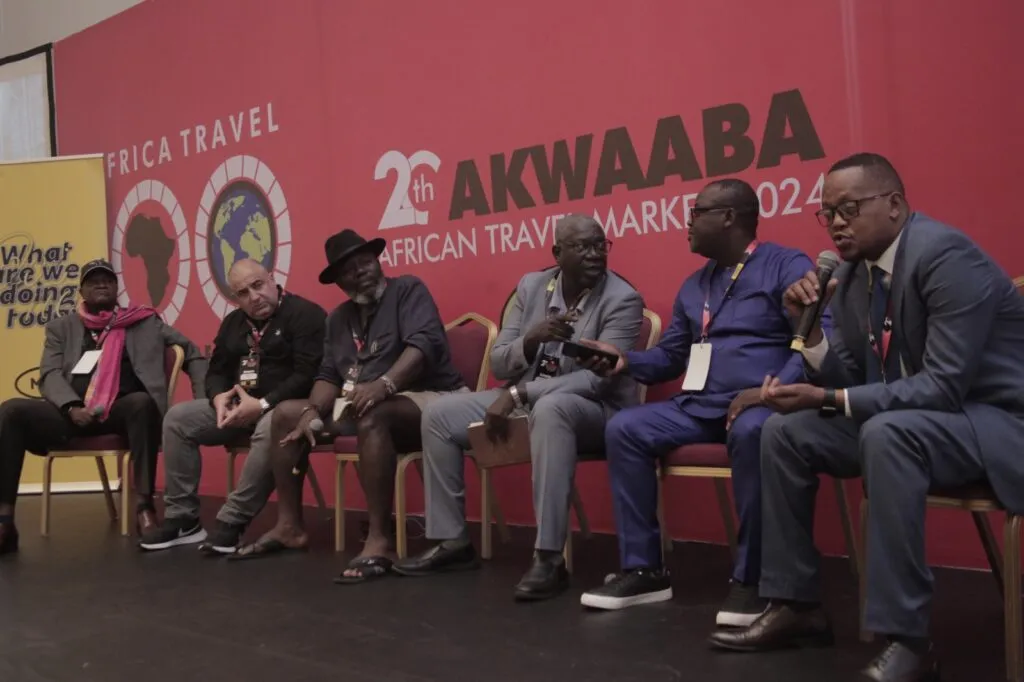
It was another successful outing for the at the 20th Akwaaba African Travel Market held earlier in the week, which brought together tourism experts, aviation gurus, hoteliers, airlines, travel agents and many others from different parts of the world, especially from African countries to the commercial city of Lagos.
It was another heart-warming experience, as the organiser of the event, Ambassador Ikechi Uko, recalled the genesis of the travel market and how it has significantly influenced the development and growth of tourism in Nigeria.
Uko revealed that before Akwaaba African Travel Market was established, Africans were travelling to London to sell African destinations and he reasoned that Africa should sell their destination in Africa and that was what prompted him to start Akwaaba.
“The vision from the beginning was to bring Africans together. Why do we need to go to London to sell Africa? This vision came to fruition when the General Manager of Eko Hotel and Suits then encouraged me to start the travel market in 2004. In the first exhibition, 80 per cent of the cost was written off by Eko Hotel,” Uko disclosed.
But by the next year, the programme picked a foreign support in the Minister of Tourism, Arts and Culture of Ghana, the first Minister to attend the travel market, and thenceforth it has been a success story. And after 20 years of the event, Nigeria has garnered strength through many efforts, including the meetings offered by Akwaaba, to become a tourist destination in Africa.
“Nigeria is ripe for tourism. Nigeria has come of age and it is ready to play,” Uko further said.
The travel market brought together many egg-heads, and many experts who brainstormed during the three-day event; thanks to MTN and the Lagos state government, which sponsored the event, he added.
Travel and tourism stakeholders noted that significant mileage has been recorded in the growth of tourism in Africa, but during one of the panel sessions at this year’s event, experts pointed out the hindrances and positives to the development of tourism in the region.
The experts identified some of the hindrances to include visa policy issues, poor leveraging of technology, non-involvement of the local communities, poor infrastructure amongst others. The fact that obtaining visa from one African country to another had always been cumbersome, it has made the entire visa process a disincentive, coupled with the relative high cost of visa in some African countries.
In fact, some countries create the impression that they are doing foreigners who wish to come to their countries a favour. These are those countries that have not realised that tourism is a huge foreign exchange earner.
On the discussion on how to change the aforementioned incentives, the moderator of the session, Ambassador Ikechi Uko said, a change could be achieved only if there is collaboration, partnerships and the political will by the government to do so.
He recalled the recent reduction in the fees of Visa-On-Arrival by the Nigerian government due to the complaints by foreign participants to the Akwaaba African Travel Market, remarking that it brought great relief to the visitors and seamless movement for many others into the country.
CEO of Dodi Travels, Ghana, Mr. Ahmed Naaman, said that restrictive visa policy over the years has limited people from visiting Africa. According to him, those willing to visit know the continent has a lot to offer in terms of tourism but because of having to get different visas for every country they want to visit and with high visa fees, they would rather opt to visit one places and go back, adding that another hurdle is the lengthy processing period of the visas which could be frustrating.
Mr. Edi Lawani of Kuruku Nigeria, pointed out that Africa is yet to fully embrace technology to sell their beautiful unique tourism destinations to the world, observing that many African countries are still struggling to develop their digital infrastructure, thus making it difficult for tourists to get information about destinations, festivals, activities or even communicate with local tour operators and travel agencies in those countries.
Lawani stressed that, in this era of social media, the continent is lagging behind in the use of social media tools like Facebook, TikTok, Instagram and others that are revolutionising the tourism industry globally.
Lending his support to that in the area of payment for tour packages, using technology, a representative of MTN Nigeria at the event, Mr. Bayo Omomowo, noted that the company has revolutionised the payments process with the introduction of their payment platform called Momo in about six African countries.
In paying for packages, he said, a client from Nigeria can pay with the naira using Momo where it is available, eliminating the stress of changing the naira to the currency of the country he or she is planning to visit before paying.
“The Momo base in Nigeria is the highest in Africa so, there is a huge market for you, we can work together, we can digitalise to enable you to a platform for cross-border remittance, and personal remittances. We are now working on the big payment sites, and we can work together on your tours and products once they are available. You can advertise your bookings, packages.”
Mr. Davidson Mugisha from Rwanda emphasised that community involvement remained key in driving tourism, adding that, in many countries, government and the private sectors tend to do everything alone without involving the communities who have the right knowledge of the culture, location of sites and destinations. Community involvement is also important in the area of security.
Mugisha added that government, foreign and private initiatives in their quest to boost the sector, could achieve little if the communities are sidelined and cited the initiative Rwanda has adopted to boost tourism, bringing the youths into the picture.

Mugisha also emphasised that doing things without inputs from the community could lead to conflict and rivalry, adding that, carrying them along can bring about development and job creation for youths in the areas.
Other areas of concern to Mugisha is about the epileptic internet connection, which he described as poor, coupled with the issue of insecurity, and high taxes that tourists pay when coming into the country and when accessing the sites.
Dr. Adama Bah from Gambia, advocated for a collaborative approach across the continent’s tourism industry and highlighted Africa’s rich cultural heritage as a major asset, underscoring the need for better implementation of strategies within the sector
“If we get support from the African Union (AU) and other unions, we can complete the entire travel market. By joining forces, we can create a Pan-African travel market where we all see ourselves and sell our products. Our biggest asset is culture, but there is a need for improvement in what we are doing,” Bah said.
While identifying recurring challenge faced by Africans across various sectors of the continent’s economy, he said: “In Africa, we are very good at creating blueprints and agreeing on things, but we seldom implement them. That is one of our biggest problems.”
Akwaaba travel market ended on a wonderful note, with strong promise from the organiser that next year show will have a full bouquet of all the tourism and aviation events in one fell swoop, in a three-day event that will bring stakeholders from aviation and tourism, insurance handling companies and others into one roof at Eko Hotel and Suits in Lagos.






